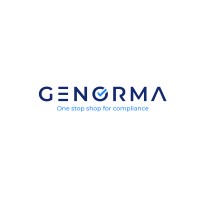Business Success with Harmonised Standards
Unlocking Business Success with Harmonised Standards: A Key to Compliance and Market Access
Publicado el viernes, 15 de noviembre de 2024 a las 13:01
In today’s global market, businesses must navigate a complex web of regulations to stay competitive, ensure product safety, and meet customer expectations. One of the most effective tools for achieving this is the use of harmonised standards. These standards are not just technical guidelines but vital instruments that allow businesses to demonstrate compliance with EU laws, improve operational efficiency, and expand their reach in the marketplace.
What Are Harmonised Standards?Harmonised standards are European standards developed to support the application of European Union (EU) legislation, particularly under the New Legislative Framework (NLF). They are created by European standardisation organisations such as CEN (European Committee for Standardization), CENELEC (European Committee for Electrotechnical Standardization), and ETSI (European Telecommunications Standards Institute). When a standard is harmonised, it means it’s officially recognised by the EU to be in line with specific legislative requirements, allowing companies to demonstrate that their products and services comply with EU regulations.
These standards cover a wide range of areas, including product safety, environmental performance, and quality management, and they’re applied across industries from machinery to medical devices, and from construction to food safety.
Why Harmonised Standards Are Crucial for Business- Ensure Legal Compliance
For businesses selling products in the European Union, compliance with EU legislation is mandatory. Harmonised standards help businesses align their operations with these legal requirements. For example, companies in the electrical appliance industry must comply with the Low Voltage Directive (LVD). By adhering to EN 60335 (a harmonised standard for household electrical appliances), manufacturers can ensure their products meet safety and performance requirements.
Failure to comply with these standards can lead to costly recalls, legal action, or a ban on selling products in the EU market. In contrast, aligning with harmonised standards provides businesses with a clear pathway to compliance, reducing the risk of regulatory penalties.
- Build Customer Trust and Brand Reputation
Customers today are more informed than ever, and they expect companies to deliver safe, reliable, and environmentally friendly products. By adhering to harmonised standards, businesses can assure customers that their products meet the highest safety and quality standards.
For instance, products certified under ISO 9001 (Quality Management Systems) or ISO 14001 (Environmental Management Systems) are trusted globally, enhancing a company's reputation for quality and sustainability. Meeting harmonised standards isn't just about regulatory compliance—it's also a powerful marketing tool that can set a business apart in a crowded marketplace.
- Facilitate Market Access and Interoperability
Harmonised standards not only ensure compliance but also make it easier to access new markets. For businesses looking to expand beyond national borders, these standards create a level playing field by providing clear and consistent criteria for products.
For example, a manufacturer of medical devices who complies with the EN 60601 standard (for medical electrical equipment) can sell their products in any EU country, knowing that the product meets EU health and safety requirements. Harmonised standards also promote interoperability, especially in sectors like telecommunications, IT, and transportation, where systems need to work together across borders and technologies.
- Enhance Operational Efficiency and Reduce Costs
Implementing harmonised standards can improve internal processes, reduce inefficiencies, and lower costs. By adopting industry best practices and quality management systems, businesses can streamline their production, reduce waste, and improve product consistency. Harmonised standards often include guidelines for continuous improvement, helping companies refine their operations and remain competitive.
-
Access Comprehensive Resources
For businesses, staying updated with the latest harmonised standards can be overwhelming. That’s where platforms like Genorma.com come in. Genorma provides a centralised, easy-to-use database where businesses can access the most current and comprehensive information on harmonised standards. This simplifies the process of finding the standards relevant to your industry, making it easier to stay compliant and up to date with changes in regulations. -
Boost Your Competitive Edge
Harmonised standards can give businesses a competitive advantage by ensuring that products are safe, efficient, and compliant with the latest EU regulations. Companies adhering to these standards are more likely to win contracts, attract investors, and gain customer loyalty. By using standards as a foundation for your business strategy, you’ll not only meet legal requirements but also set your brand apart as a leader in quality and reliability. -
Achieve Certification and Recognition
Many harmonised standards, such as ISO 9001, ISO 14001, or ISO 27001 (Information Security Management), offer opportunities for certification. Achieving certification can be an important differentiator, providing formal recognition of your commitment to quality, safety, and sustainability. Certification can also make your business eligible for certain tenders, public procurement contracts, and international partnerships.
Getting started with harmonised standards for your business is simple, especially when you know where to look. Here’s how to begin:
- Identify Relevant Standards: Determine which harmonised standards are applicable to your industry and product line. For example, if you're manufacturing electrical equipment, the Low Voltage Directive (LVD) will be a key standard to follow.
- Consult Resources: Use platforms like Genorma.com to access up-to-date summaries of harmonised standards. You can quickly search and find the most relevant standards for your business.
- Implement and Certify: Once you’ve identified the relevant standards, begin integrating them into your processes. Certification bodies can help guide you through the process of achieving formal recognition for your compliance.
15/11/2024 13:01 | imprentaonlinemadrid




